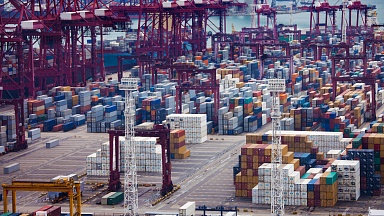«Globally, more than 60 million commercial trucks are driven by qualified and dedicated workers who, unfortunately, often face difficult conditions, poor access to decent sanitation facilities and a lack of respect at loading and unloading sites all of which have been exacerbated by the COVID-19 pandemic,» the Global Shippers Alliance (GSA), the International Road Transport Union (IRU) and the International Transport Workers’ Federation (ITF), said in a joint statement.
The Driver Charter lays out commitments for shippers, transport operators and drivers to lift global standards for drivers while also aiming to address some of the barriers to recruitment in the industry, especially for women and young people, in order to equitably solve chronic driver shortages.
More than one fifth of vacancies remain unfilled in many countries. However only 2% of truck drivers globally are women, and as few as 5% of drivers are under 25 in Europe and Russia, the statement noted.
GSA chairman, Denis Choumert, said: «Shippers want to run collection and delivery sites that are welcoming and secure for drivers. It is in our interest, and the interest of efficient global supply chains, to make sure that drivers are empowered to do their job well. This charter will encourage compliance with laws and standards on loading and unloading sites, and best practice on how we can best work with commercial drivers all over the world.»
IRU secretary general, Umberto de Pretto, commented: «Road transport is a vital link in all supply chains. As we have seen clearly during the pandemic, truck and van drivers and the operators they work for are essential to the functioning of the global economy, yet all too often they face poor conditions. They are dedicated professionals who need a decent working environment to do their job properly.»
ITF general secretary, Stephen Cotton, added: «The COVID-19 pandemic has shown the world the importance of transport workers, and the drivers, who have kept the world moving. These workers must be able to do their job in a safe, respectful and non-discriminatory environment, with decent employment conditions. This charter is an important step by employers, shippers and unions to improve treatment for these key workers, and also for attracting more women and young people into the industry.»





